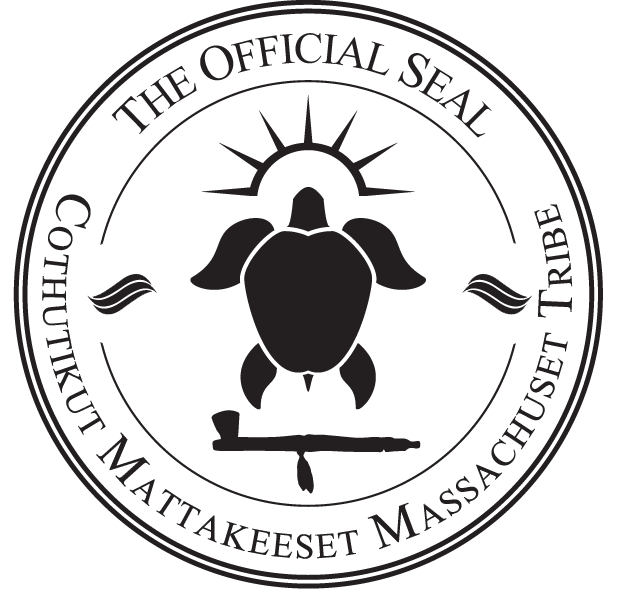Tribal Wellness Court Mission
TO PROVIDE A PATH TO HEALING FOR NON-VIOLENT TRIBAL CITIZENS AND NON TRIBAL CITIZENS AFFECTED BY DRUGS AND/OR ALCOHOL THROUGH AN INTENSIVE SUBSTANCE ABUSE TREATMENT PROGRAM “MEDICINE TALK” TO IMPROVE FAMILY, COMMUNITY, AND CULTURAL INVOLVEMENT, TO PROMOTE HEALTHY LIFE CHOICES, AND TO REDUCE CRIMINAL RECIDIVISM
To reduce alcohol and other substance abuse-related crimes by providing treatment planning, case management, traditional healing care and court monitoring of tribal and non tribal citizen Offenders
As an alternative option in support of Governor Bakers response toward fighting the Opiod epidemic in the commonwealth state of Massachusetts, the Mattakeeset Wellness Court will expand access and opportunity to concurrent jurisdiction over drug-related criminal cases that involve Tribal citizens in the Commonwealth state of Massachusetts and non Tribal citizens.
To assist tribal citizens and non tribal citizen offenders in the reintegration process back into their Community
To apply interventions that meet the cultural and spiritual needs of Tribal people and non tribal people
The Mattakeeset Tribal Healing Wellness Court Key Components
Key Component #1: Individual and Community Healing Focus
Mattakeeset Tribal Wellness Court brings together alcohol and drug treatment, community healing resources, and the tribal justice process by using a team approach to achieve the physical and spiritual healing of the individual participant, and to promote Native nation building and the well-being of the community.
Key Component #2: Referral Points and Legal Process
Participants enter Mattakeeset Tribal Wellness Court through various referral points and legal processes that promote tribal sovereignty and the participant’s due (fair) process rights.
Key Component #3: Screening and Eligibility
Eligible court-involved substance-abusing parents, guardians, juveniles, and adults are identified early through legal and clinical screening for eligibility and are promptly placed into the Mattakeeset Tribal Wellness Court.
Key Component #4: Treatment and Rehabilitation
Mattakeeset Tribal healing Wellness Court provides access to holistic, structured, and phased alcohol and drug abuse treatment and rehabilitation services that incorporate culture and tradition.
Key Component #5: Intensive Supervision
Mattakeeset Tribal Healing wellness Court participants are monitored through intensive supervision that includes frequent and random testing for alcohol and drug use, while participants and their families benefit from effective team-based case management.
Key Component #6: Incentives and Sanctions
Progressive rewards (or incentives) and consequences (or sanctions) are used to encourage participant compliance with the Mattakeeset Tribal Healing Wellness Court requirements.
Key Component #7: Judicial Interaction
Ongoing involvement of a Mattakeeset Tribal Healing Wellness Court judge with the Tribal Wellness Court team and staffing, and ongoing Tribal Wellness Court judge interaction with each participant are essential.
Key Component #8: Monitoring and Evaluation
Process measurement, performance measurement, and evaluation are tools used to monitor and evaluate the achievement of program goals, identify needed improvements to the Mattakeeset Tribal Healing Wellness Court and to the tribal court process, determine participant progress, and provide information to governing bodies, interested community groups, and funding sources.
Key Component #9: Continuing Interdisciplinary and Community Education
Continuing interdisciplinary and community education promote effective Tribal Healing Wellness Court planning, implementation, and operation.
Key Component #10: Team Interaction
The development and maintenance of ongoing commitments, communication, coordination, and cooperation among Mattakeeset Tribal Healing Wellness Court team members, service providers and payers, the community and relevant organizations, including the use of formal written procedures and agreements, are critical for Tribal Wellness Court success.

